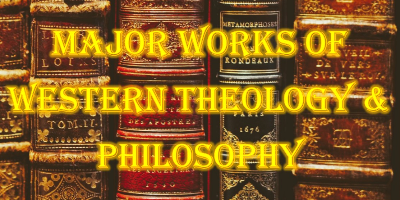22 фев 1594 г. - Of the Lawes of Ecclesistical Politie - Richard Hooker
Описание:
Of the Lawes of Ecclesiastical Politie is Hooker's best-known work, with the first four books being published in 1594. The fifth was published in 1597, while the final three were published posthumously, and indeed may not all be his own work. Structurally, the work is a carefully worked out reply to the general principles of Puritanism as found in The Admonition and Thomas Cartwright's follow-up writings, more specifically:Scripture alone is the rule that should govern all human conduct;
Scripture prescribes an unalterable form of Church government;
The English Church is corrupted by Roman Catholic orders, rites, etc.;
The law is corrupt in not allowing lay elders;
'There ought not to be in the Church Bishops'.
Of the Lawes has been characterised as "probably the first great work of philosophy and theology to be written in English."[13] The book is far more than a negative rebuttal of the puritan claims: it is (here McAdoo quotes John S. Marshall) 'a continuous and coherent whole presenting a philosophy and theology congenial to the Anglican Book of Common Prayer and the traditional aspects of the Elizabethan Settlement."
Quoting C. S. Lewis, Stephen Neill underlines its positive side in the following terms: Hitherto, in England, "controversy had involved only tactics; Hooker added strategy. Long before the close fighting in Book III begins, the puritan position has been rendered desperate by the great flanking movements in Books I and II. . . . Thus the refutation of the enemy comes in the end to seem a very small thing, a by-product."
It is a massive work that deals mainly with the proper governance of the churches ("polity"). The Puritans advocated the demotion of clergy and ecclesiasticism. Hooker attempted to work out which methods of organising churches are best.[2] What was at stake behind the theology was the position of the Queen Elizabeth I as the Supreme Governor of the Church. If doctrine were not to be settled by authorities, and if Martin Luther's argument for the priesthood of all believers were to be followed to its extreme with government by the Elect, then having the monarch as the governor of the church was intolerable. On the other side, if the monarch were appointed by God to be the governor of the church, then local parishes going their own ways on doctrine were similarly intolerable.
In political philosophy, Hooker is best remembered for his account of law and the origins of government in Book One of the Politie. Drawing heavily on the legal thought of Thomas Aquinas, Hooker distinguishes seven forms of law: eternal law ("that which God hath eternally purposed himself in all his works to observe"), celestial law (God's law for the angels), nature's law (that part of God's eternal law that governs natural objects), the law of reason (dictates of Right Reason that normatively govern human conduct), human positive law (rules made by human lawmakers for the ordering of a civil society), divine law (rules laid down by God that can only be known by special revelation), and ecclesiastical law (rules for the governance of a church). Like Aristotle, whom he frequently quotes, Hooker believes that humans are naturally inclined to live in society. Governments, he claims, are based on both this natural social instinct and on the express or implied consent of the governed.
The Laws is remembered not only for its stature as a monumental work of Anglican thought, but also for its influence in the development of theology, political theory, and English prose.
Добавлено на ленту времени:
Дата:
22 фев 1594 г.
Сейчас
~ 431 г назад
